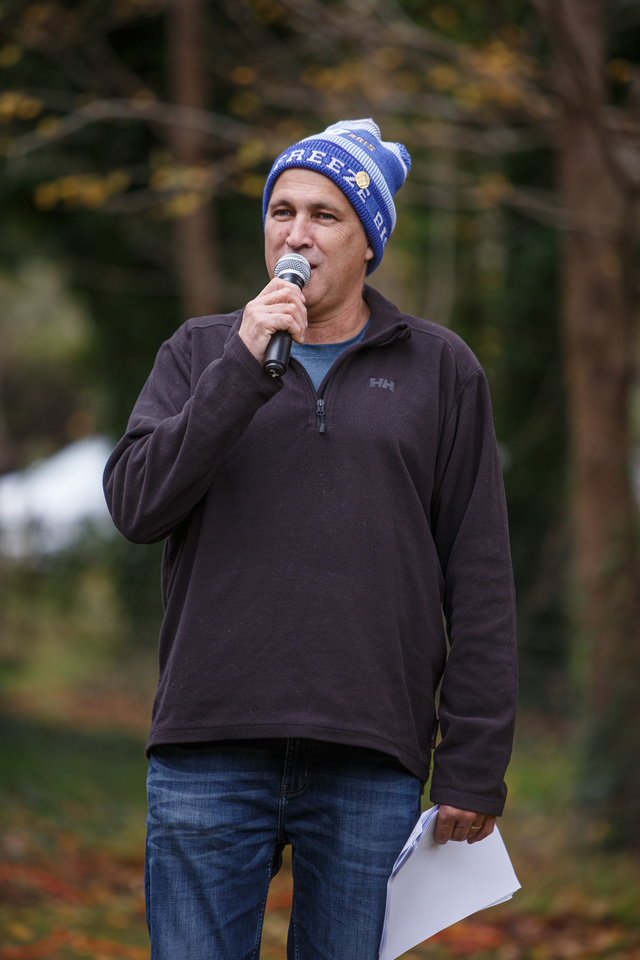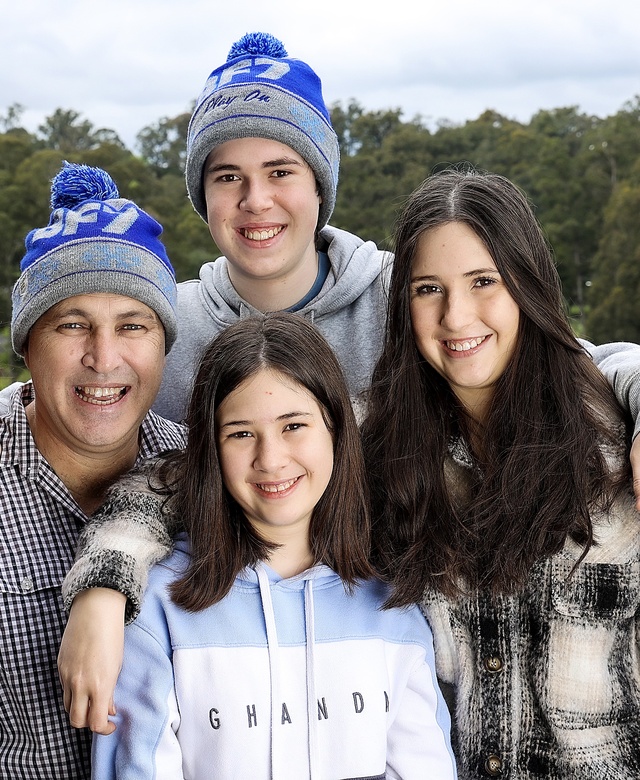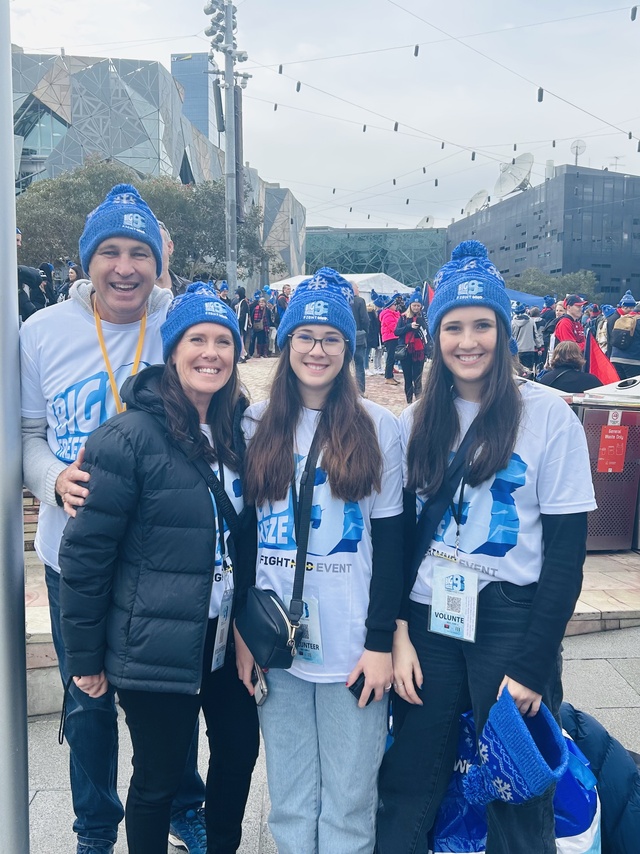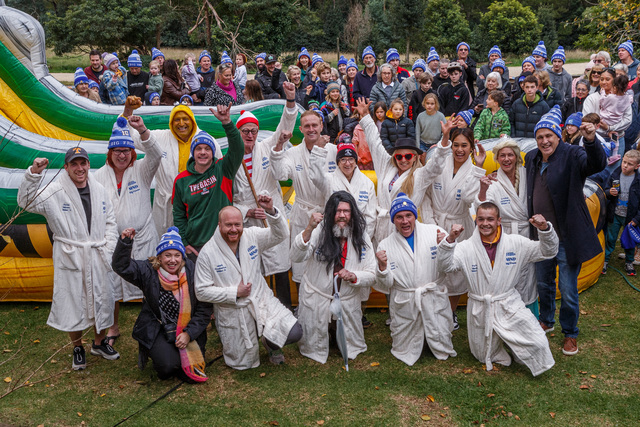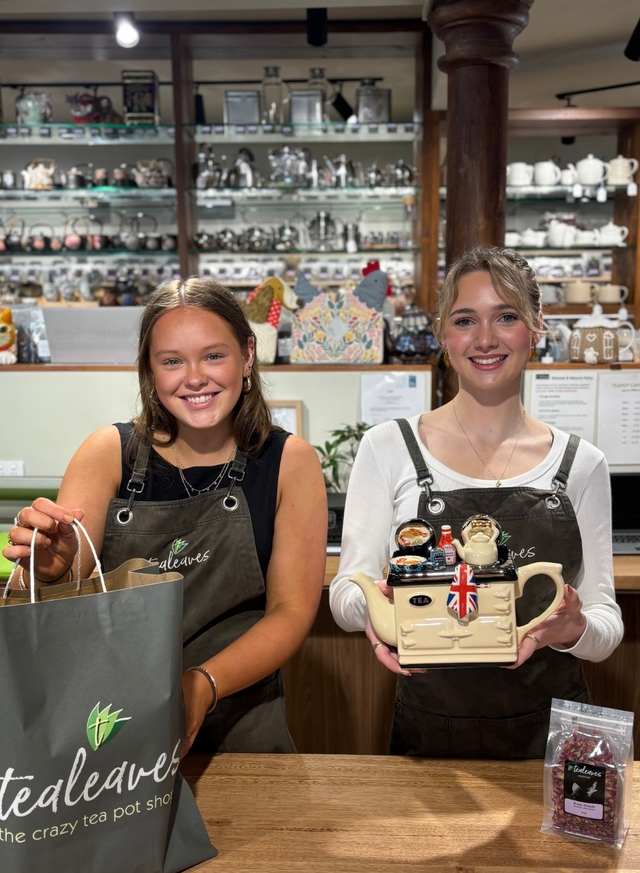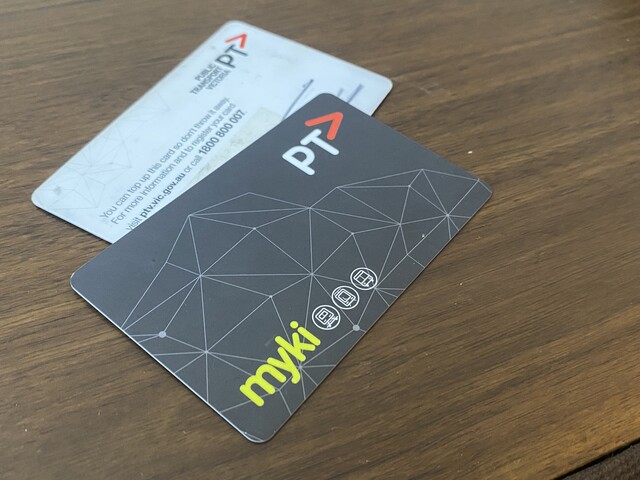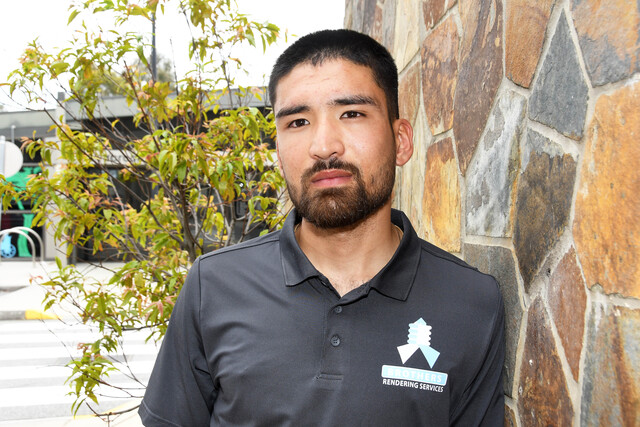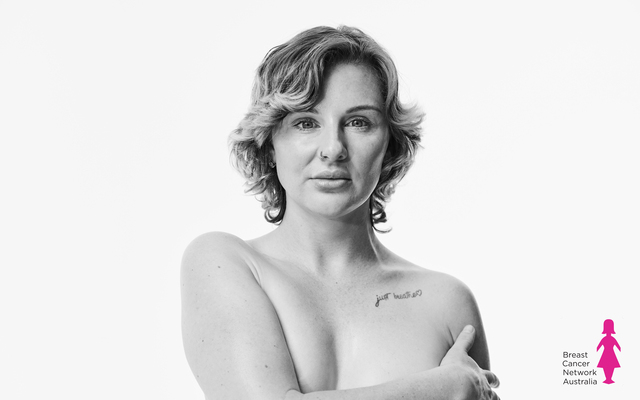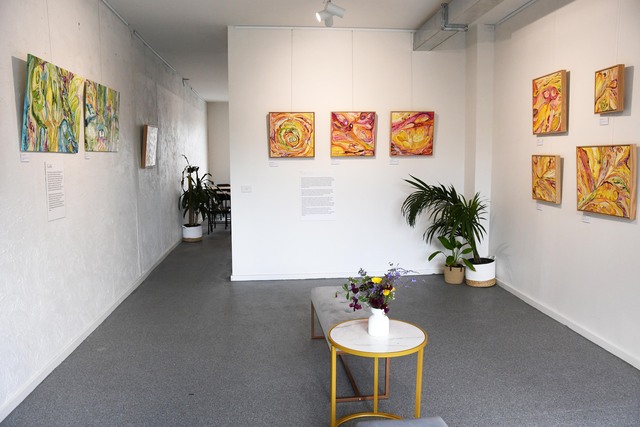PRECEDE: Motor neurone disease has been catapulted into the national conversation over the past 10 years, coined by Neale Daniher as ‘the Beast’. Yet, there are still so many diagnosed every year and many suffer quietly throughout the world. In 2024, a local face brought that reality home for many throughout the community. Emerald’s Matt Stickland was recognised as a Person of the Year. Reporter Corey Everitt spoke to him about the battle with the beast, from the ongoing efforts to support awareness and research to the internal conflict of not letting the disease define you.
BREAKOUT QUOTE: “It’s 90 percent a psychological battle because your brain is fully aware of what’s happening around you and your body lets you down.”
On average, two people are diagnosed with motor neurone disease (MND) every day in Australia.
MND is when nerves controlling the body’s motor function begin to die.
It is terminal, the majority of suffers die when the disease degenerates the muscles enough to cause respiratory failure.
Some individuals have lived with it for decades, and others have died within a year. Either way, ’the Beast’ eventually gets you.
The average life expectancy is two to three years after diagnosis.
A devastating diagnosis that ripples through families and communities, Emerald’s Matt Stickland is among the countless who have received this news.
Matt is nearing a decade of living with MND.
When Matt received his diagnosis in 2015, he and his wife Sarah largely kept it among family and close friends.
“Sarah and I were just blown away,” Matt said.
“When you’re told you’ve got between two or three years to live, the mode you go into is how do I get my affairs in order, how do you make sure the family is going to be financially supported, what does it mean for working and the rest of my ability to do things.”
They shielded their children from the news for about the first year, typical of parents, Matt and Sarah just kept moving through it.
“We shared it with a couple of close friends and parents in the early months, but we didn’t really share it outside of that,” he said.
“We didn’t know how to, and we didn’t want to upset people, we didn’t want to bring them down, we didn’t want motor neurone disease to define me as a person.”
The horror of MND is compounded by its unique kind of cruelty, not only as a terminal disease but in the way it takes someone.
While your mind, with its memories, thoughts and feelings, is unchanged, it’s your body that crumbles around you.
Your essence and humanity are seemingly betrayed by the decline of its vessel and its ability to touch, speak and express to others.
As Matt said, it’s not letting MND ‘define you’ that is a big part of the battle.
“It’s 90 percent a psychological battle because your brain is fully aware of what’s happening around you and your body lets you down,” Matt said.
Matt continued to work for five years after his diagnosis, he says with no shame that he is rather stubborn.
“I became more accepting of things in the last six months when I was working,” he said.
“I started to embrace that I was struggling with work, I had a couple of falls and I just realised that I needed to be there for my family.”
Matt played a big roles in promoting FightMND and MND Victoria this year.
Australia is lucky to have such significant activity occurring in this field and the championing of the work for many gives something to fight for.
Matt found purpose in reaching out to others, when he hears of someone who has been diagnosed he messages them to simply say ‘when you’re ready’. He knows the importance of speaking about it, but from his own experience, he knows it can take time.
He simply describes his activity as paying off a debt for all the work MND Victoria, Neale Daniher and FightMND have done.
“I reflected on things like the Big Freeze and how I am lucky enough to be a part of a new drug trial, the first one funded by them,” he said.
“I was speaking to a mentor who talked to me about things that I’m grateful for every day and that’s when I realised I had some purpose.
“Neale has paid it forward big time to the future sufferers of MND.”
When Big Freeze 10 came around, the yearly staple only continued to grow.
In 2023, Matt was a part of the Garfield Hotel Big Freeze and it was there that they got the idea of running one in the hills.
With some advice from the pub, Matt and Sarah got to work for a Big Freeze uniting all the towns from Monbulk to Gembrook.
“Sarah and I had a couple of good friends, one was really good at marketing, she did all the social media, the other one was really good at asking for donations or products to auction,” Matt explained.
“We got a cross-section of people from each town, we set up to cover our costs and maybe raise $20,000.
“And then about midway through we thought, maybe we could get to $50,000 or $60,000.”
Everyone got involved, Emerald Village Association president Peter Maloney hired a fundraising manager and got the beanie sales coordinated, and Cockatoo Primary did an event that contributed $13,000 on its own.
On the big day in June, the crowd for the slide measured beyond a thousand.
The final tally for HillsMND Big Freeze was $113,000.
“It was one of my most proud moments,” Matt said.
“To see over a thousand people at the pub, the community getting together was the most rewarding part of the whole experience.
“I don’t know if we could ever replicate that experience.”
Raising awareness is as much about reasserting that people are not defined by the disease, than just the concern of the disease itself.
For Matt, it’s appreciating what you have and still holding hope for the future.
He emphasised his appreciation for MND Victoria, FightMND and everyone in the community who has supported the cause.
“I feel blessed that I’m still here after all this time, and I’m mostly self-sufficient, although Sarah would say I’m not,” Matt said with a smirk.
“Compared to where we were 10 years ago, in another 10 years, where are we going to be?
“Researchers and scientists are working hard and really getting somewhere.
“A lot of that is from the money that has been raised and we’re now one of the best research countries in the world.
“So even just those individual acts have just been huge for it. I think the biggest takeaway is a thank you to the community.”
If you want to support MND Victoria and FightMND, go to their websites at mnd.org.au/donate and fightmnd.org.au/ways-to-support/

